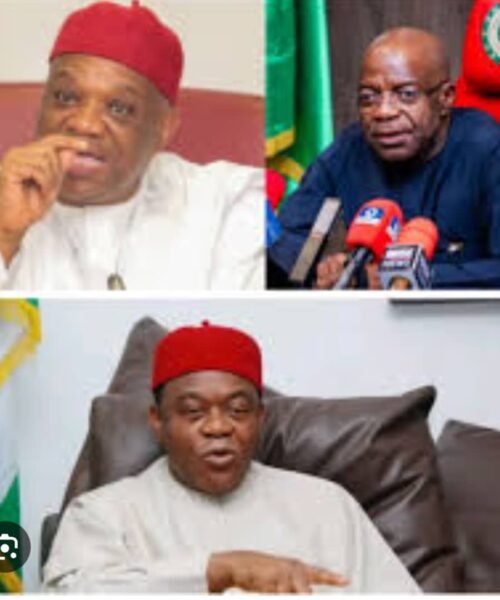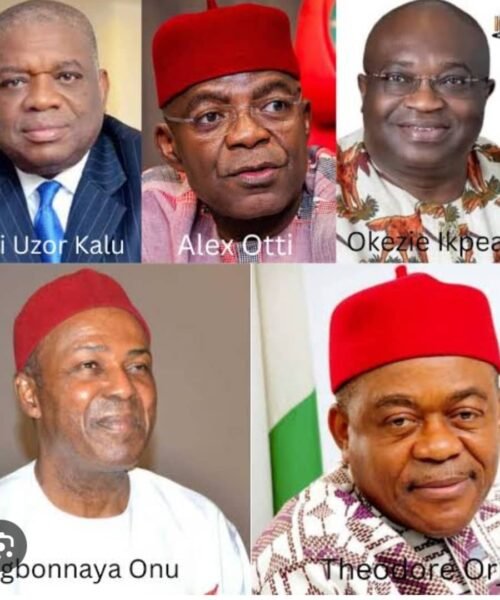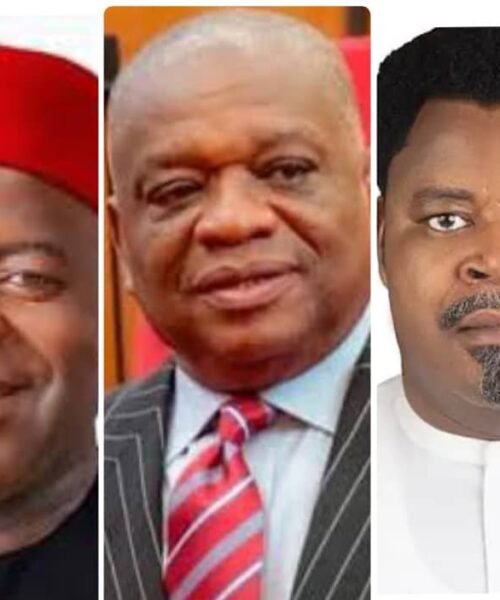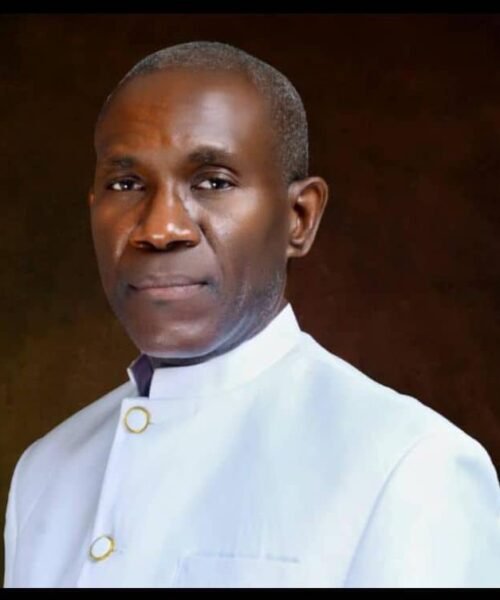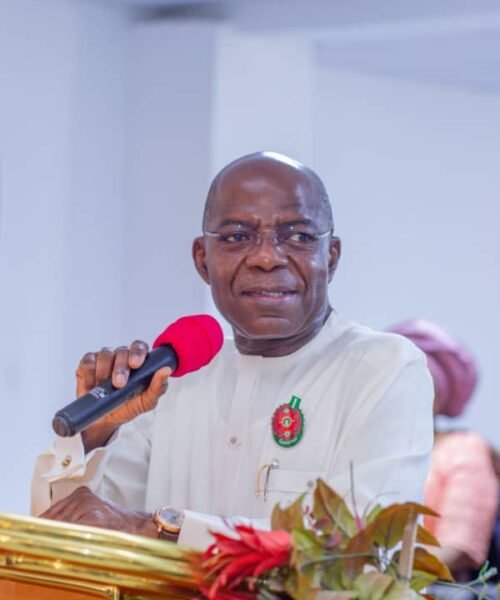An Open Letter to the President of the Federal Republic of Nigeria: On the Fallibility of Human Senses, Theories, and the Imperative of Divine Reliance
Your Excellency, President Bola Ahmed Tinubu,
As you assume the mantle of leadership over our beloved nation, Nigeria, you do so at a time of profound complexity—a moment where economic instability, security crises, and social fragmentation threaten to eclipse the promise of unity and progress. In such times, leaders and citizens alike are tempted to place their faith in tangible solutions: empirical data, political theories, or the assurances of human ingenuity. Yet history resoundingly teaches us that neither our senses nor our intellectual frameworks are infallible. It is in God alone—the Author of wisdom and the Sustainer of nations—that we find unshakable truth.
This letter seeks not to critique your policies or diminish the value of human effort, but to humbly remind us all of the limitations of mortal understanding. Through the lens of history, we will explore how reliance on sensory perception, scientific certainty, or political ideologies has often led humanity astray. Conversely, nations and leaders who anchored their trust in divine guidance emerged resilient, even in the face of seemingly insurmountable odds.
I. The Tower of Babel: When Human Ambition Overreaches
The ancient story of the Tower of Babel (Genesis 11:1-9) serves as a timeless parable of humanity’s hubris. United by language and ambition, the people sought to build a tower “whose top may reach unto heaven.” Their senses told them the project was feasible; their collective intellect assured them of success. Yet God, observing their pride and self-sufficiency, confounded their speech and scattered them across the earth.
This narrative mirrors moments in Nigeria’s history where grand schemes, untethered from moral and spiritual grounding, collapsed under the weight of human arrogance. Consider the 1970s oil boom: flush with petrodollars, Nigeria embarked on ambitious infrastructure projects, confident that wealth alone would catalyze development. Yet the absence of ethical governance and divine accountability led to rampant corruption, leaving a legacy of debt and decay. Human senses—our sight of oil wealth, our trust in economic models—proved disastrously inadequate.
II. The Titanic: The Illusion of Human Invincibility
In 1912, the RMS Titanic—branded “unsinkable” by its creators—met its tragic fate on its maiden voyage. Engineers trusted their theories; passengers relied on their senses (the ship’s grandeur, the calm seas). Yet hubris blinded them to the iceberg ahead. Over 1,500 lives were lost, a stark reminder that human ingenuity, however advanced, cannot foresee every peril.

Nigeria, too, has faced its “Titanic moments.” The Structural Adjustment Programs (SAPs) of the 1980s, imposed with assurances of economic revival, instead deepened poverty and unemployment. Theories crafted in distant boardrooms failed to account for Nigeria’s unique socio-cultural fabric. The lesson? Policies divorced from divine wisdom and local realities risk shipwreck.
III. The 2008 Global Financial Crisis: The Collapse of Economic Certainty
Modern economists once believed they had mastered the art of predicting market behavior. Then came 2008: complex financial instruments, praised as “risk-free,” triggered a global meltdown. Nobel laureates in economics admitted their models were flawed; senses had deceived, theories had failed.
Nigeria’s economy, though insulated at the time, now faces analogous vulnerabilities. Our reliance on oil—a commodity subject to volatile global forces—echoes the folly of placing faith in transient systems. As inflation soars and the naira weakens, we are reminded that economic recovery cannot be achieved through human strategy alone. It demands prayerful discernment and alignment with God’s principles of justice, equity, and stewardship.
IV. COVID-19: The Limits of Scientific Mastery
The COVID-19 pandemic humbled even the most advanced nations. Epidemiologists scrambled to model the virus’s spread; vaccines, though miraculous achievements, arrived only after immense suffering. The crisis exposed the fragility of human control—a reality Nigerians know too well, as our healthcare system buckled under the strain.
Here, too, divine lessons emerge. Nations that combined scientific rigor with collective prayer—New Zealand, South Korea—fared better than those steeped in self-reliance. For Nigeria, this underscores the need to marry policy with piety, recognizing that God alone holds the power to heal nations (2 Chronicles 7:14).
V. Nigeria’s Crossroads: A Call to Divine Anchoring
Your Excellency, Nigeria stands at a precipice. Banditry ravages the north, separatist tensions simmer in the southeast, and poverty festers nationwide. Yet history teaches us that crises are also opportunities for spiritual renewal. Consider the story of King Jehoshaphat (2 Chronicles 20), who faced overwhelming armies but proclaimed a national fast, declaring, “We do not know what to do, but our eyes are on You.” God responded with deliverance.

I urge you to emulate this model:
- Institutionalize Prayer and Fasting: Declare national days of prayer, inviting clergy and citizens to seek God’s mercy.
- Govern with Spiritual Humility: Acknowledge the limits of human wisdom; surround yourself with advisors who prioritize ethics over expediency.
- Address Injustice with Scriptural Courage: Corruption persists because systems lack fear of God. Let divine justice, not political calculus, guide reforms. Conclusion: A Weather Metaphor for Our Time
As I write, Nigeria’s skies alternate between scorching heat and sudden downpours—a metaphor for our socio-political climate. Human senses see only the storm; human theories offer temporary shelters. But God, who commands the rains and the winds, holds the blueprint for lasting peace.
Your Excellency, the task before you is Herculean, but not insurmountable. Shut the door of your office, kneel in prayer, and seek the face of the One who “removes kings and sets up kings” (Daniel 2:21). The redemption of Nigeria lies not in our plans, but in His purpose.
Respectfully Yours in Service to God and Country,
Dr. Chukwuemeka Ifegwu Eke
Department of Economics
Yakubu Gowon University
Nigeria
P.S.: May the words of Proverbs 3:5-6 guide your heart: “Trust in the Lord with all your heart, and lean not on your own understanding; in all your ways acknowledge Him, and He shall direct your paths.”


